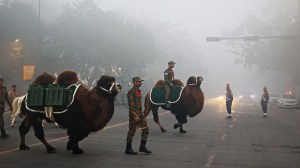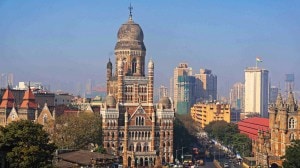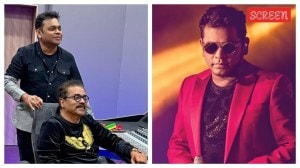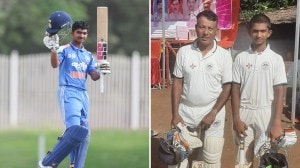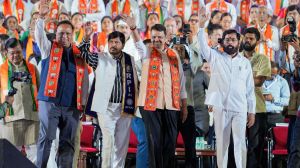Ferrying the govt
On April 26, 66-year-old Anthony Vaz, a taxi driver, may be too busy to vote. He8217;ll be ferrying electoral officers and polling material...

On April 26, 66-year-old Anthony Vaz, a taxi driver, may be too busy to vote. He8217;ll be ferrying electoral officers and polling material around the city. Vaz is not alone. He8217;s one of a band of 1,089 taxis that will be on special election duty on polling day.
Vaz is excited, but not unduly so. He has the air of one who8217;s done it before. In fact, Vaz has had these 8216;8216;special8217;8217; duties for the last 34 years, contributing his mite to the turning of Indian democracy8217;s massive wheels at every civic, state Assembly and Lok Sabha election.
8216;8216;During elections, all government vehicles are requistioned for election duty and placed at the disposal of the Collector. And in case of a shortage, various transport associations are contacted,8217;8217; explains K.T. Golani, chief Regional Transport Officer, Central Zone.
And so that nobody8217;s left out, the engaging of taxis is divided neatly between two taxi unions 8212; the Mumbai Taximen8217;s Union MTU and the Bombay Taxi Association.
The vehicles are responsible for transporting men and material to polling stations. 8216;8216;And in case of shortages of any material, we have to quickly drive to the main polling centre and get reinforcements,8217;8217; says Ribijansingh Khatri 54, a cabbie who did election duty during the Lok Sabha poll of 1999.
And missing their regular business, there8217;s a bigger sacrifice they8217;re required to make 8212; many drivers on election duty will have to forgo their voting rights.
8216;8216;Most try to vote. But if the driver8217;s residence and the deputed centre are at two extreme ends of the city, he just has to make do without voting,8217;8217; says A.L. Quadros, general secretary of the MTU.
Besides, Quadros explains, just about 30 per cent of the city8217;s taxi-drivers have permanent residences in Mumbai. Most others are registered in their hometowns in Uttar Pradesh and Bihar. 8216;8216;That8217;s the reason politicians are not bothered about our problems 8212; we8217;re not really a votebank,8217;8217; he says.
Dinnanath Pandey 74 couldn8217;t vote in 1999 though he8217;s registered in the city. 8216;8216;But it8217;s government duty after all. Hopefully, this time, I will be able to vote,8217;8217; he says.
There8217;s a compensation package from the government too, albeit usually a few months late in coming. But for most of our taxiwallahs, it8217;s a sense of duty that drives them, besides the thrill of adventure.
8216;8216;I could get inside a polling booth and see the going-on behind the curtains. Nobody can do that,8217;8217; Vaz smiles.
- 01
- 02
- 03
- 04
- 05








